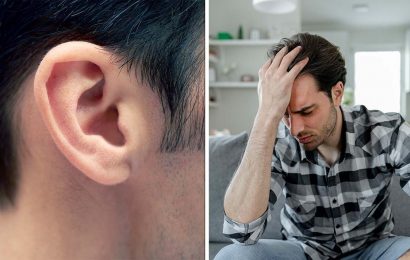"Vitamin D3 has many mechanisms by which it improves bone health, controls neurological problems, reduces risk of microbial infection, increases cellular natural immunity, and adaptive immunity," a doctor says

Vitamin is an important component of health, without which the body cannot function properly. But as many people continue to be in lockdown, the absence of sunlight can cause some serious vitamin D deficiency.
Why is vitamin D3 important?
Dr Harish Naik, consultant neurosurgery, Hiranandani Hospital, Vashi-A Fortis Network Hospital says “vitamin D3 has many mechanisms by which it improves bone health, controls neurological problems, reduces risk of microbial infection, increases cellular natural immunity, and adaptive immunity”.
What is vitamin D?
It is a steroid hormone, activated endogenously with the effect of ultraviolet radiation received from the sun, or from food sources and dietary supplements. Our body must have vitamin D to absorb calcium, to be able to promote and maintain bone health. We also need vitamin D for other important body functions, the doctor explains.
Vitamin D deficiency
According to Dr Naik, vitamin D insufficiency is a public health problem affecting over a billion people across India. “Too little vitamin D results in soft bones in children (rickets) and fragile, misshapen bones in adults (osteomalacia), it can lead to serious medical conditions, too.
“Vitamin D deficiency has now been linked to breast cancer, colon cancer, prostate cancer, heart disease, depression, weight gain, and other maladies. During this pandemic, lack of sunlight minimised activities, and isolation greatly impacted people. We have come across many patients who developed bone problems, depression, and neurological issues — all of which are linked to the deficiency of vitamin D,” he says.

Symptoms of vitamin D deficiency in adults
Tiredness, aches and pains, and a general sense of not feeling well, severe bone or muscle pain, weakness that may cause difficulty climbing stairs or getting up from the floor, or a low chair, stress fractures, especially in your legs, pelvis, and hips, cautions the doctor.
Alternative/food sources of vitamin D3:
* Fish
* Cod-liver oil
* Egg yolk
* Shrimp
* Milk (fortified)
* Breakfast cereal (fortified)
* Yogurt (fortified)
* Orange juice (fortified)
“Besides appreciating food sources people, especially women and the elderly, need to regularly screen for vitamin D deficiency through a pathological blood test and bone density test. This is significant for overall health and wellbeing,” Dr Naik concludes.
For more lifestyle news, follow us: Twitter: lifestyle_ie | Facebook: IE Lifestyle | Instagram: ie_lifestyle
Source: Read Full Article


